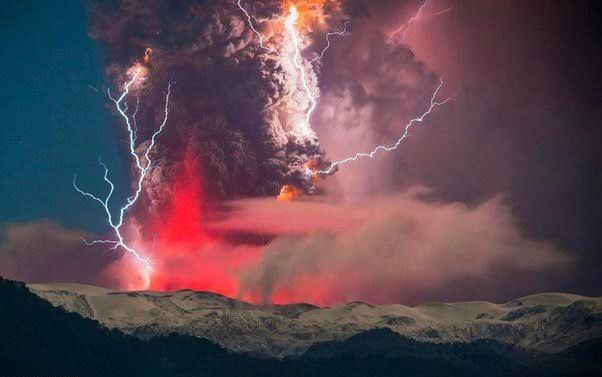From the First Raindrop to a Terrestrial Hard Drive: Speculating on Water's Memory and Earth's Evolution
Water, a fundamental element of life and an integral part of our planet, is a subject of wonder and speculation. If we consider water as a conductor of information, a tantalizing philosophical idea emerges: could our oceans and groundwater – which have been around since the dawn of our planet – contain

Water, a fundamental element of life and an integral part of our planet, is a subject of wonder and speculation. If we consider water as a conductor of information, a tantalizing philosophical idea emerges: could our oceans and groundwater – which have been around since the dawn of our planet – contain information about Earth's formation and evolution?
To explore this idea, let's first delve into the concept of water as a medium of information. From a scientific perspective, water undoubtedly transfers physical and chemical properties. Its polar molecular structure facilitates interactions with various substances, acting as a conduit for these properties. However, does this 'information transfer' extend beyond the physical realm?
The notion of water possessing 'memory' is where science converges into philosophy. Masaru Emoto, a Japanese researcher, claimed that water could store and transmit complex forms of information such as emotions or thoughts. Although Emoto's work has been heavily criticized due to lack of scientific rigor, his hypothesis ignited a spark in the collective consciousness, prompting us to consider water's potential role in preserving and transmitting information.
Applying this controversial theory to the vast bodies of water on Earth, one might speculate that our oceans and groundwater serve as a colossal 'hard drive,' storing data about our planet's history. From the moment the first raindrop fell on Earth, every subsequent interaction - from the formation of the first life forms to the seismic shifts that shaped our continents - could, in theory, have left an imprint on these waters.
Imagine the possibilities if this were true. The world's oceans and groundwater could be seen as a vast, circulating library of Earth's history, encoding billions of years of geological and biological evolution. Each wave, each tide, each current would be a moving chapter in a never-ending story.
However, it's crucial to remember that this concept stands on the fringe of scientific understanding, more rooted in metaphysics than empiricism. The idea of water as an information repository remains a philosophical conjecture rather than a scientifically substantiated fact. While it's an enthralling idea, it's one that current scientific methods can neither prove nor disprove.
In the end, the notion of water possessing memory and conveying information about Earth's history serves as a thought-provoking philosophical perspective rather than a concrete scientific reality. It encourages us to contemplate the world from different angles, and it underlines how much we still have to learn about the fundamental elements that surround us. It inspires us to remain curious, open-minded, and respectful of the awe-inspiring complexity and mystery of our beautiful blue planet.
Unlocking Earth's Aquatic Hard Drive: A Call for Scientific Exploration into Water's Potential Memory"
The idea of water as a vast, terrestrial hard drive, encoding information from Earth's primordial history to the present day, is undeniably fascinating. It conjures up images of water molecules whispering ancient secrets and ocean currents carrying tales of epochs past. But can this philosophical conjecture ever transition into the realm of empirical science? Is it possible that what now seems as improbable as wireless communication seemed three decades ago, could become a subject of legitimate scientific inquiry?
At the heart of this question lies the contentious notion of water's 'memory.' Today, it is mostly a topic of speculation and debate, with no solid scientific consensus. Masaru Emoto's theories, suggesting that water could store and transmit complex forms of information, have not been scientifically validated. Yet, as history has shown us, the unverified theories of today can sometimes become the scientific breakthroughs of tomorrow. It was not so long ago that the idea of transmitting images, sound, and messages through thin air seemed like a fantasy. Now, it's an integral part of our everyday lives.
To transform the intriguing concept of water's memory into a credible scientific hypothesis, we need rigorous, well-designed research. We need innovative methodologies that can test this theory under controlled conditions. We need researchers brave enough to venture into uncharted scientific territories and institutions willing to fund such explorations.
Perhaps, the first step would be to investigate the physical and chemical properties of water at a more fundamental level. Quantum physics, a field that has repeatedly challenged our understanding of reality, might offer some insights. If water molecules can indeed retain and transmit information, it's possible that the mechanism lies in the realm of quantum phenomena.
Advancements in technology might also open new avenues for exploring water's potential memory. With the rapid progression in fields like nanotechnology and molecular biology, we might soon have tools sophisticated enough to detect subtle changes in water's structure and behavior.
As we delve deeper into this unexplored domain, we must proceed with caution, skeptical optimism, and scientific rigor. It's crucial to remember that while open-mindedness is vital in scientific inquiry, so is rigorous scrutiny. The burden of proof lies on extraordinary claims, and the concept of water's memory is undoubtedly extraordinary.
Whether we'll ever unlock the secrets of Earth's aquatic hard drive remains uncertain. But the very act of asking such audacious questions, of daring to explore the seemingly improbable, is what propels science – and humanity – forward. Even if the journey doesn't lead us to the destination we initially imagined, it's bound to uncover new knowledge, stimulate fresh ideas, and challenge our understanding of the world – and that in itself is a worthwhile pursuit.




